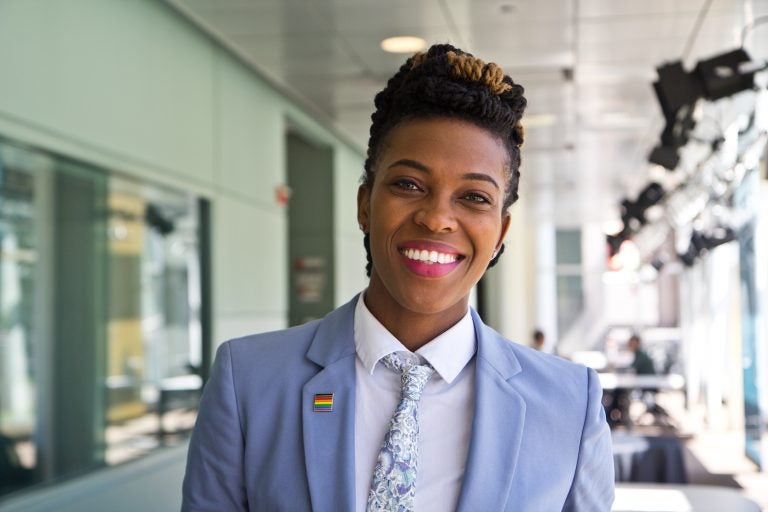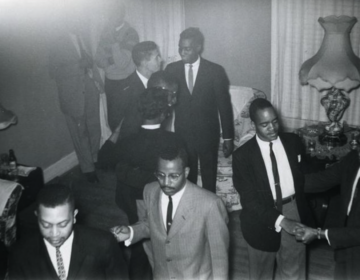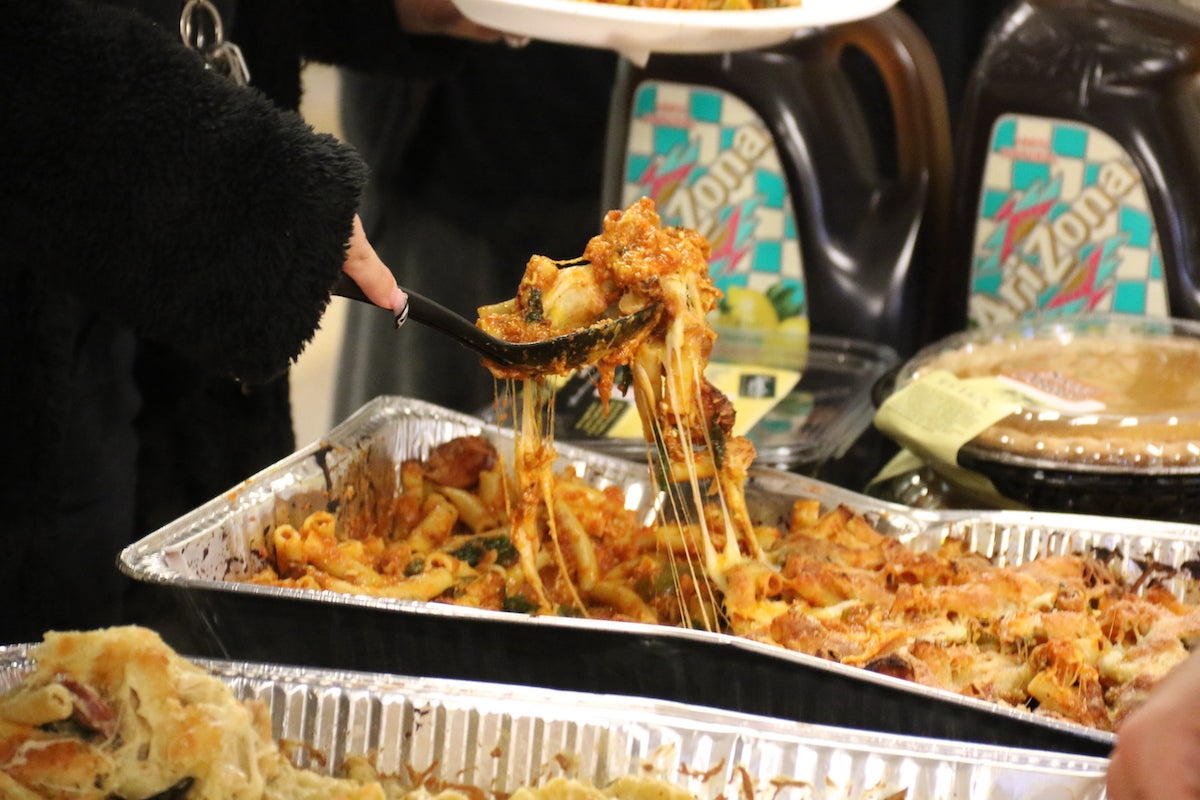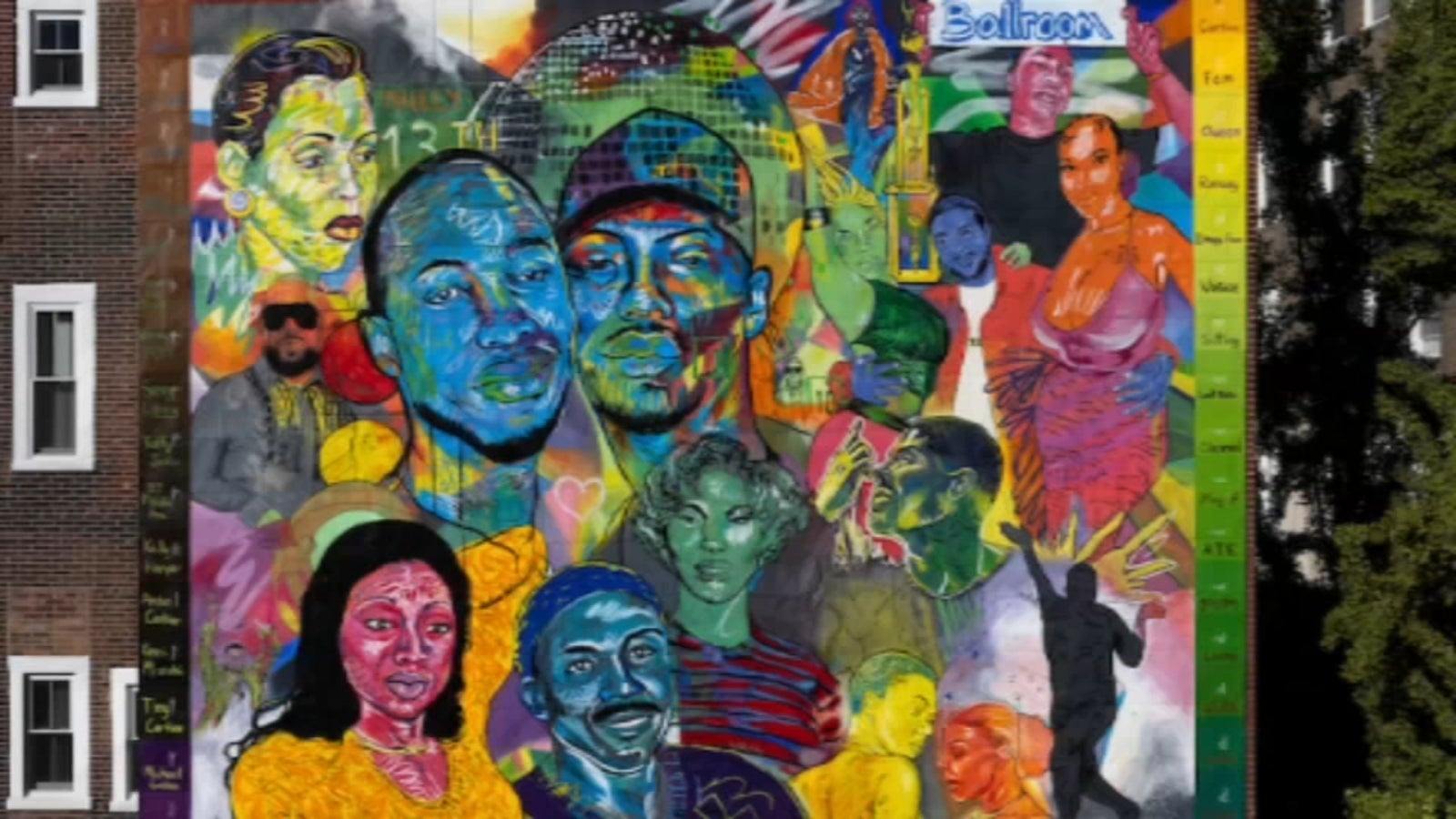Philly LGBT Affairs leader addresses sobering and celebratory matters this Pride Month
Morning Edition host, Jennifer Lynn, talks with Amber Hikes, director of Philadelphia Office of LGBT Affairs about Pride Month and other issues on her desk.
Listen 5:55
Amber Hikes is Executive Director of the Philadelphia Office of LGBT Affairs. (Kimberly Paynter/WHYY)
This month’s Pride Month celebrations are taking place in many corners of the Philadelphia region.
If you attend an event, it’s quite possible you’ll run into my guest, whose recent Twitter posts include photos of her, flashing a laser-beam-bright smile, her shoulders cloaked in a Pride flag as though she’s being swept away by rainbow stripes.
Amber Hikes is Philadelphia’s director of the Office of LGBT Affairs. We sat down last week to catch up on Pride Month which, she says continues to charge along, chock full of events that are diverse and inclusive.
Still, I know there are sobering matters that stack up on her desk every day. I took things down a notch to ask her what’s on the top of that stack.
—
Let’s see. Just this past week there was a trans woman who was arrested at pride for trying to burn a flag…
An American flag?
The flag I think had American stars and stripes, but it was a modified flag. She was arrested for trying to burn the flag and she was sent to a men’s prison. It’s frankly inappropriate it’s inhumane. It tears at the kind of basic dignity and decency of human beings. And so that’s what’s on my my desk right now, working to address that issue.
Who is advocating for this person?
Many kind of activist groups for advocating. There are folks in city government that are advocating, not just for this person, but what this person represents … because she’s certainly not the first and, unfortunately, not the last to experience this.
There’s a quote on your Twitter that says, ‘Diversity is what you have. Inclusion is what you do.’ Tell me about that quote.
So I’m so often asked about the difference between diversity, inclusion, and intersectionality. And so when I say ‘diversity is what you have and inclusion is what you,’ do diversity so often is about … checking boxes and making sure you have certain people that are present. Inclusion is about hearing those voices, so not just having them there and you can have a body in a room. But are you making sure those voices are being heard at the table? Intersectionality takes that one step further. And it’s not just checking those boxes but it’s thinking about the layers of oppression that intersect and affect these different members of marginalized communities, and making sure that those who are certainly most marginalized are having their voices heard and their experiences shared and we’re acting on the concerns that they’re bringing to the table.
Since we last spoke, Philadelphia has been recognized as one of the most LGBTQ friendly cities in the country. That sounds like progress.
Absolutely.
What makes Philly friendly like that?
For Philadelphia being the fifth largest city in the country, there is a closeness that for better or worse, really sets us apart from other cities. You can see that manifest itself in Pride Month. This pride month feels different to people. It’s received a face-lift this year. What we said is, what would happen if we intentionally cultivated pride-themed activities that were for youth, elders, people of color, trans folks, for families, for people who were sober, and people who were living with disabilities, or people living with HIV? What would it look like if we included those people intentionally? And we created a month … of events that said, ‘For you who haven’t necessarily felt included in the past, this event is for you.’ And the result has been extraordinary.
A few weeks ago, the city held its first LGBTQ State of the Union. What was achieved?
The state of the union was an opportunity to really flip this kind of government model on its head and take it.
Which model is it flipping?
That we as government are going to tell you what you what you need instead of the other way around. And this state of the union, … which really hasn’t been done in this capacity anywhere before, was an opportunity to have folks say, ‘Here’s what we’re doing’ and have community members say, ‘But here’s what you need to be doing.’ After that, I can tell you the state of our community is strong and it’s inspired.
You’re clearly pumped about pride month and I appreciate that. What about this month for you perhaps brings up something that stings in the past, from your past that maybe led you to fight the fight for others?
In all the work I do, I remember experiences that I have had in this community and in others being a young, black, queer, woman who was raised in the South. So Jennifer, you pick an ism and I’ll give you ten stories about it. So unfortunately, there are a lot of things that sing about different identities. But I am using this Pride Month in particular and this position that I have in this office to make sure that I can find opportunities where people who look like me, have had experiences like mine, people who don’t look like me and haven’t had experiences like mine to be able to celebrate ourselves in the most authentic ways possible … to be out, be proud, and be ourselves in this great beautiful city of ours.
And I have to once again antagonize you — your office is called the Office of LGBT Affairs. I have asked this before. Where is the ‘Q’ for ‘queer’ or other letters, numbers that represent Philly’s diverse, proud community?
I am happy to say that I have already received approval for it so that change is coming soon.
Really?
Absolutely, after I left you last year. I asked, and they said whenever you’re ready.
Seriously?
Absolutely.
You’ll have to change the banner on the letterhead I guess.
No worries.
Thanks for joining us.
Thank you.
—
For a list of Pride Month events that will round out the month of June, go to beta.phila.gov/spotlight/lgbt-pride-month
WHYY is your source for fact-based, in-depth journalism and information. As a nonprofit organization, we rely on financial support from readers like you. Please give today.





